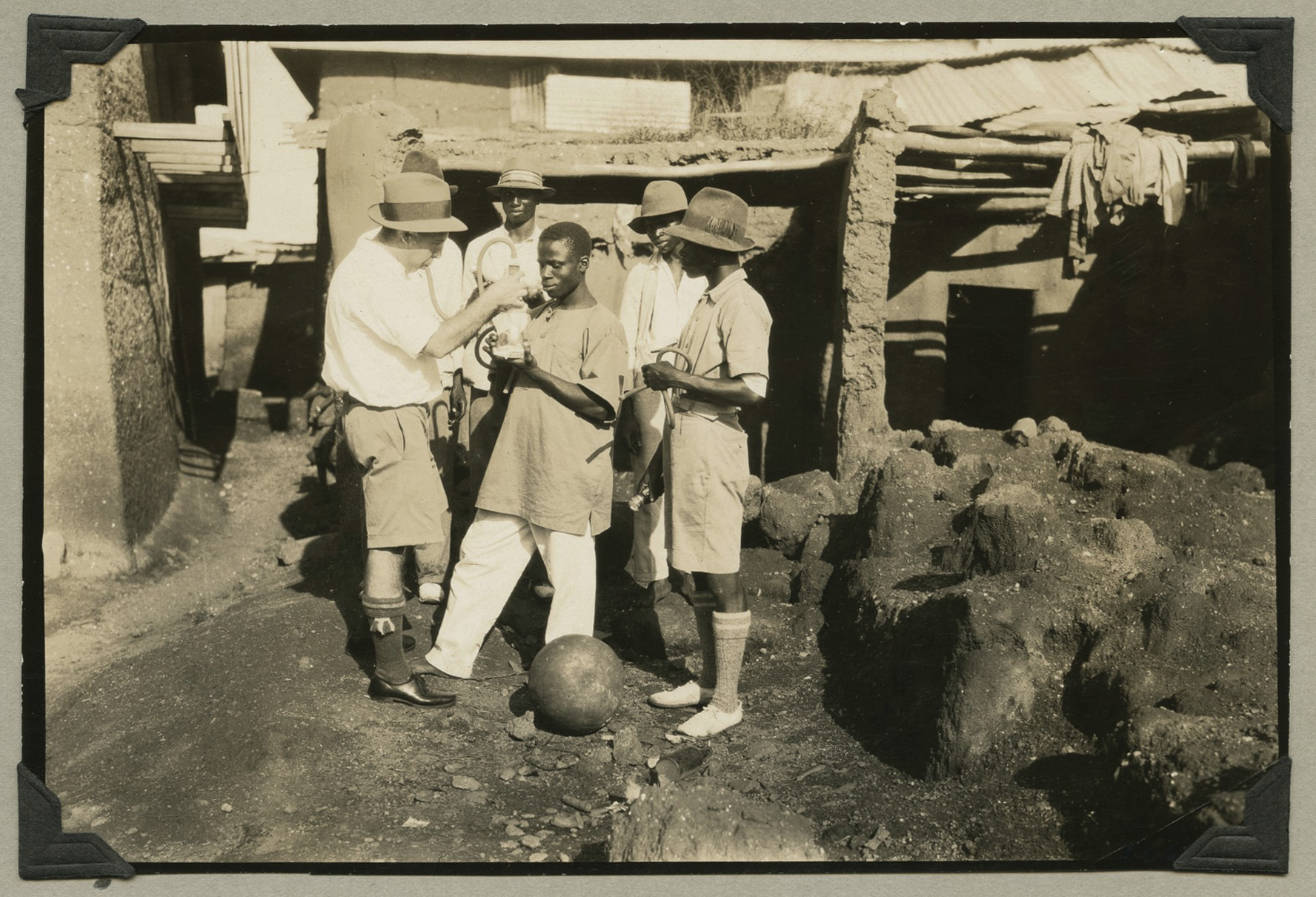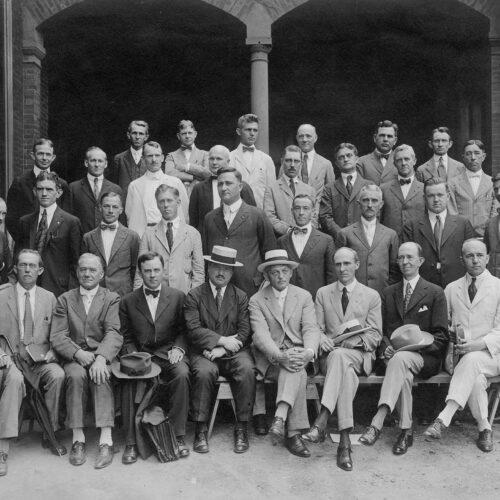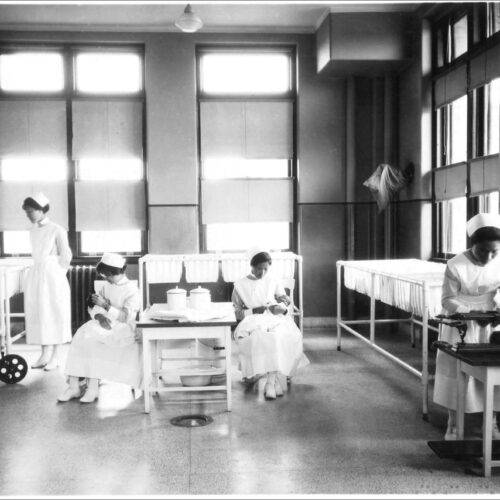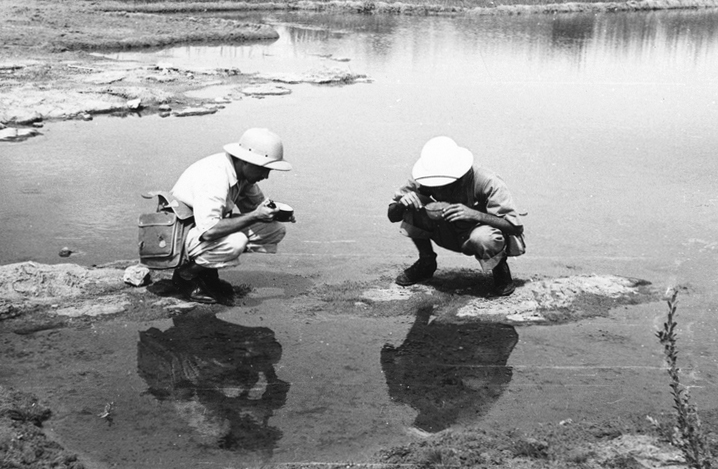Our New Research series offers readers a venue to take a peek at recent archival research at RAC. It presents newly published reports submitted by RAC travel stipends recipients who have pursued their studies using our collections. In this edition of our series, the researchers’ reports showcase how our collections document events and people’s lives from different time periods, geographic locations, and disciplines. The four reports here cite records from the Rockefeller Foundation archives, as well as the papers of Nelson A. Rockefeller. You are encouraged to explore these papers by our research visitors, read about their findings, and note their thoughts about how our collections impact their work.
“Nelson Rockefeller’s Report and Richard Nixon’s Foreign Policy towards Latin America” by Vitor Loureiro Sion
Vitor Loureiro Sion’s research report looks at the development of the Nixon administration’s foreign policy towards Latin America. In “Nelson Rockefeller’s Report and Richard Nixon’s Foreign Policy towards Latin America,” he focuses on the series of missions to Latin America led by Nelson Rockefeller in 1969 on the behest of the Nixon White House and the subsequent report that he presented to the president. Sion provides background information on the visits, the structure and goals of the delegation, and the impact that the report had on Nixon’s overall foreign policy for the region. As he explains, following two Democratic administrations, President Nixon was looking for a fresh approach to Latin America and had tapped into Nelson Rockefeller’s past experience and extensive ties with that region to provide him with insight for setting a new agenda. While, overall, the detailed report was well-received, political events, as well as a different perspective coming from advisor Henry Kissinger, ultimately sent this foreign policy initiative in a different direction. In his research report, Vitor Loureiro Sion also provides insight from his time at RAC to assist others interested in exploring the archives for material on this topic in the future.
Vitor Loureiro Sion has a doctorate in international relations from the Programa de Pós-Graduação San Tiago Dantas (Unesp-Unicamp-PUC-SP), São Paulo, Brazil. He has also worked at the Centro de Relações Internacionais da Fundação Getúlio Vargas (FGV).
“The Rockefeller Foundation’s International Health Board and the Attempt to Eradicate Yellow Fever” by Paul S. Sutter
In his report, “The Rockefeller Foundation’s International Health Board and the Attempt to Eradicate Yellow Fever,” Paul S. Sutter looks at multi-decade efforts by the Rockefeller Foundation to eliminate yellow fever worldwide as a public health scourge. He notes that its efforts focused on implementing a campaign that responded to then-current theories about the persistence of the disease. Central to the contemporaneous understanding of yellow fever was the notion of “key centers.” According to this model, yellow fever was a disease of port cities, spread by an urban Aedes aegypti mosquito vector, which was able to infect new immigrants without any immunity who were arriving in a steady stream to the port cities. The thinking was that if these mosquitoes thriving in these urban areas could be eliminated, the disease could be conquered. As Prof. Sutter observes, the discovery of “jungle yellow fever” outbreaks and new vector hosts far from the port cities ultimately shattered this campaign’s theoretical basis and as a result, was an important contributor to the Rockefeller Foundation’s decision to reconceptualize its global health initiatives.
Paul S. Sutter is a professor of US and global environmental history at the University of Colorado, Boulder. At the university, he teaches courses in these fields to both undergraduate and graduate students and has authored and edited a number of books in these subject areas.
“Making Experts, Sustaining Families: The Rockefeller Foundation’s Mexican Fellowships as a Social Program for the Middle Class” by Rachel Grace Newman
“Making Experts, Sustaining Families: The Rockefeller Foundation’s Mexican Fellowships as a Social Program for the Middle Class” looks at the Rockefeller Foundation (RF)’s multi-decade Green Revolution-related program to train early-career Mexican agronomists at US universities. In the RF archives, Rachel Grace Newman found the fellowship files to be an excellent resource for both quantitative and qualitative analysis of these fellowships. Instead of concentrating on the studies and accomplishments of these fellows, her report reflects her interest in the social history of these experts: how the training of these scientists impacted their personal lives and the lives of their families, and how the RF dealt with (or did not address) the “human resources” aspect of the fellowships. Dr. Newman’s report also draws attention to the gender disparities in the RF’s approach to women scientists seeking fellowships. Not only did women constitute only a very small percentages of awarded fellows, but they did not receive the same “human resource” considerations that their male counterparts did.
Rachel Grace Newman is an assistant professor of history at Colgate University. Trained in both the US and Mexico, she is a historian of modern Mexico, with deep interest in migration, childhood and youth studies, and social inequality.
“Intervention Programs of Public Health: Rockefeller Fellowship, Dr. Adetokunbo Lucas, and the Development of Public Health in Nigeria, 1963-1986” by Bidemi Oladayo Balogun
In his report, Bidemi Oladayo Balogun notes that as part of its public health initiatives, the Rockefeller Foundation’s fellowship programs started in Latin America, soon after included Europe and then Asia, and only later extended to Africa. “Intervention Programs of Public Health: Rockefeller Fellowship, Dr. Adetokunbo Lucas, and the Development of Public Health in Nigeria, 1963-1986” looks at the last segment of this RF initiative. His report centers on the impact of fellowships in Nigeria and how they helped reshape public health education and policy in the post-independence period. He focuses his study on one particular fellowship, to Adetokunbo Lucas, which, overall, had a monumental impact on Nigerian public health. This fellowship was ultimately instrumental in helping to promote the career of Lucas, a promising tropical disease specialist and academic leader, onto the global stage. Bidemi Balogun argues that to understand the trajectory of Dr. Lucas’s career, it is important to trace how Nigerian higher education in the post-independence era faced a series of challenges. Initially defined by an imposed British colonial tradition, it now had to navigate between the Cold War poles of US vs. Soviet academic orientation. All this was occurring at a time when Nigeria was becoming a key leader in the Third World movement. Balogun has found the Rockefeller Foundation archives to be a particularly rich resource in documenting the complicated dynamics of this era.
Bidemi Oladayo Balogun is a Ph.D. candidate at the Graduate Institute in Geneva, Switzerland. His current research, titled “Colonial and Postcolonial Engagements in a New World Order: Nigeria, the UN, and the WHO, 1945-1979,” examines the history of politics and healthcare in British West Africa and focuses on colonial and postcolonial Nigeria as a case study. Bidemi earned his Bachelor (Hons) in History and International Studies (2014) in Adekunle Ajasin University, Nigeria and proceeded to the University of Ibadan, Nigeria for his master’s degree in 2017.
About the RAC Research Stipend Program
The Rockefeller Archive Center offers a competitive research stipend program that provides individuals up to $5,000 for reimbursement of travel and accommodation expenses. Learn more on our Research Stipend page.



